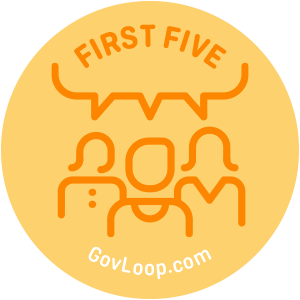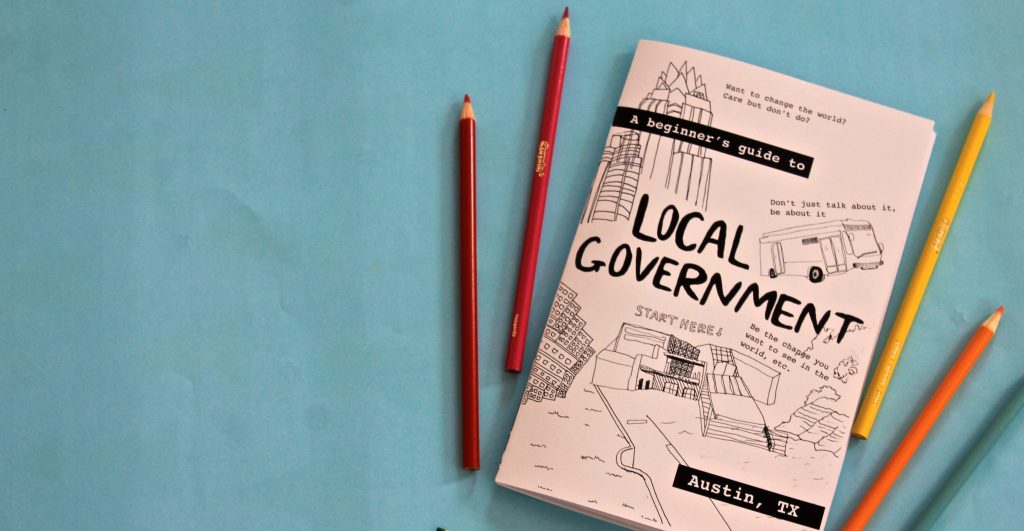While millennials enjoy talking about politics, they have a reputation for being disconnected from government. Some criticism of millennial slacktivism is certainly overblown, but millennial engagement is noticeably dismal at the state and local level. What would it take to encourage millennials to take interest in civic engagement? 
In an interview with GovLoop, Amy Stansbury and Hal Wuertz, cofounders of A Functional Democracy along with Jordan Shade, discussed how millennials in Austin, Texas and nationwide can engage with their governments in a fun and creative manner. Their book, A Beginner’s Guide to Local Government focuses on linking community and creativity to civic participation.
Stansbury started out as a journalist in Austin reporting on politics, but noticed that the local town halls she covered were never attended by many of her millennial peers. “When it comes to local government, many millennials seem completely unaware of its importance,” Stansbury said. “We see this disconnect play out in real time by seeing the same people at city council meetings over and over again. These small groups of people can get whatever they want, especially at the local level.”
While state and local governments have made efforts to bridge the gap, Stansbury noticed that most government employees still struggle to engage millennials in local politics. “I think government tries to address this disconnect by putting more tools and information online, but it’s not that simple,” she said. “Our friends aren’t going to city council meetings or posting about local government meetings. It’s not integrated into our social fabric.”
The lack of social civic engagement is something that Stansbury and Wuertz hope to address with their current project. Wuertz and Stansbury created an interactive, colorful zine about local government and civic engagement. “Our project is about creating a richer form of participation beyond calling representatives or signing a petition,” Wuertz explained. “It’s about being able to create your own community and your own self around what it means to be a citizen in this country.”
Hal Wuertz, Amy Stansbury and Jordan Shade
A Beginner’s Guide to Local Government: The Zine
With their book A Beginner’s Guide to Local Government, Stansbury and Wuertz introduce a creative way to engage millennials in local government. “The book lays out the basis of how our local government works, how to get involved in the process and how to be a real change maker in the community,” Stansbury explained.
“It starts by asking the reader what issues they care about, whether those are global or national,” Wuertz added. “The reader uses that issue to frame the way they think about local government. For instance, if the reader is passionate about environmental issues, they would complete the book’s activities from the perspective of environmental activism.”
The project is best described as an action-based zine. “On each page you’re writing things down and taking pledges to do the next step,” Stansbury said. “The goal is to have people work on the book, but move beyond the page and take steps in the real world.”
To encourage real-world action, the book assigns the reader a label based on their knowledge of local government. “We include five different levels of participation that go from knowing nothing about local government to being a mentor,” Wuertz explained. “In this book, we focus on the first level, but after completing all of the levels, the reader can act as an amplifier to show that there are different ways to learn information other than just surfing a city government website.”
The goal of the project’s Kickstarter campaign is to raise enough money to create 5,000 books to distribute throughout the city of Austin. But there’s a story behind the number 5,000: it represents the small number of people it takes to influence state and local politics. “In Austin’s last big mayoral and city council election, the majority of city council members were elected with less than 5,000 votes,” Stansbury explained. “If you can educate just 5,000 people, which is not that many in a city of a million, you could potentially change the course of an election at the local level.”
After surpassing their starting goal, the team is starting to think about what’s next for the zine. Their hope is that millennials will spread the word and start replicating the campaign in their own municipalities – across the state of Texas and even across the nation. “In an ideal world, we would love to see these books in every city, because I think the local level of government is most mystifying to people,” Stansbury said. “At the same time, it’s the level that has the most direct impact on our lives.”
How You Can Get Involved
For the millennials that want to get involved with their local governments, Stansbury and Wuertz shared these tips:
- Learn your basics first. “Find your mayor, save their contact information in your phone and follow them on social media,” Stansbury said. She also advised following local news websites and the local National Public Radio affiliate on social media. “It takes ten minutes and you’ll start to absorb that information pretty quickly.”
- Create a community around civic engagement. There’s a way to make civic engagement more fun and that’s by voting and going to town halls with friends. “Don’t make this an effort that you do alone,” Stansbury said. “Bring a friend along and make a pledge together to go to your first city council meeting. Make it fun.”
- Find a cause that resonates with you. “Get involved with local activist groups that are working on a specific cause,” Wuertz said. “You can really make a serious impact when you find that organization that vibes with you. Whether you’re passionate about the environment or women’s rights, that community of people will be mentors and will guide you into making an impact.”
Overall, Stansbury and Wuertz’ team hope to make participation in local government a part of everyone’s daily lives.
“Civic engagement should be a fundamental part of our culture,” Stansbury said. “When people move to a new city, there are articles about the best place to get a taco or see a live music show, but how do you get involved in your community? Civic engagement is core to building a more functional democracy and to being emotionally and socially fulfilled as an individual.
“It’s not just boring and it’s not just your duty, it’s something that can be quite fulfilling,” Stansbury concluded.
If you want to create something similar in your city or support the Kickstarter campaign, check out A Beginner’s Guide to Local Government or send them an email at info@afunctionaldemocracy.com.
This post is part of GovLoop’s millennial blog series, First 5
